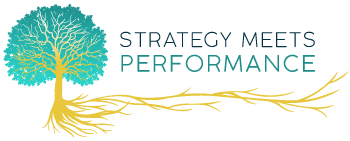“If you want to know why your people are not performing well, step up to the mirror and take a peek.”
-Ken Blanchard
I started a recent talk to a group of CEOs with this quote. I told that them that even though they would find the information I was going to share with them interesting and helpful, the real growth and ability to take the company to the next level would come from being open to change themselves.
Through my experience partnering with CEOs and leaders, I’ve come to recognize five specific behaviors that lead these people to the success they seek (higher productivity, engagement, innovation, etc.):
- Humility: Being open to change and feedback
- Courage: Acknowledging your fears and going forward anyway
- Trust: Trusting the team you have built and/or developing them so you can trust them
- Action: Taking action toward changing a long-standing habit and/or belief
- Focus: Maintaining energy and continuing what you started, rather than losing focus and moving on to the next interesting and innovative action (this is a trait of entrepreneurs, for better and worse.)
If you can do these things, you can expect to see changes in yourself, your teams and the culture of your company. Following are real-life examples of changes I have helped my clients with and their observations before and after they took the leap to “looking in the mirror.”
| Five Actions | Who | Goes from… | To… |
| 1. Humility | CEO | “I need your help with these folks. They need to change some things to be more effective…” | “Through coaching, I’ve changed and I now see the change in them.” |
| 2. Courage | Manager of Sales | “I know I need to delegate, but I don’t know where to begin. It’s so hard to let go of control, it’s what got my company to this level. Something needs to change to bring up the morale, but I don’t know where to start…” | “I found the courage to speak with some of my people and learned some great things. I’ve made some changes and people are behaving more positively and giving me suggestions when they never would have before.” |
| 3. Trust | Member of a senior team | We are polite in our teams, but don’t get to the meat of the issues” or “We are straightforward and butt heads but don’t get to win-win resolutions” | “We are going deep and talking about the real issues in a way that is respectful. It’s a huge relief that I can take things to the table and know we can create action together…” |
| 4. Action | CFO | “We need to walk the talk. I know that, but it gets difficult – when there is pressure, we tend to put our best clients at the head of the production line…it’s a challenge…” | “We have made some tough calls so we could stay true to our values about customer service. I see the change now in the conversations of our teams and their actions…they really were watching us…” |
| 5. Focus | CEO | “I know employees like to know what’s going on each week, but it takes so much time. It really was helpful when I was doing it, but I got tired of it…” | “I’ve now delegated some of this work to my team and it’s a win/win. They are growing and the employees are happy to be involved in what is happening in the company.” |
As you can see from these real examples, business owners and leaders have a remarkable ability to transform their behaviors, their teams and the company culture when they stay open to change and learning.
Peter Senge, MIT professor and management guru, sums it up nicely:
“People with a high level of personal mastery live in a continual learning mode. They never ‘arrive.’ Personal mastery is not something you possess. It is a process. It is a lifelong discipline. People with a high level of personal mastery are acutely aware of their ignorance, their incompetence, their growth areas. And they are deeply self-confident. Paradoxical? Only for those who do not see the ‘journey is the reward.’ “
Here is to a journey of self-discovery, growth and looking in the mirror. The courage to do this can just take your company to the next level.




